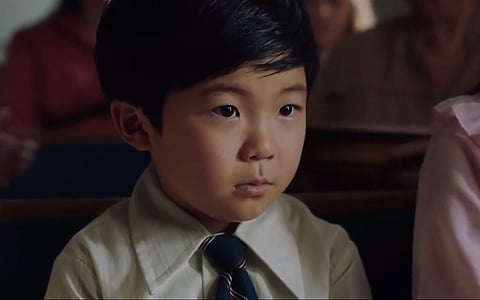
- Reviews
- Power List 2024
- Cannes 2024
- In-Depth Stories
- Web Stories
- News
- FC Lists
- Interviews
- Features
- FC SpecialsFC Specials

Spoilers ahead.
As Indian moviegoers, we have been starved of realistic family dramas for a long time. I'm not talking about films like Drishyam, which manage to capture the nuances of family dynamics but don't prioritise them as their primary focus. I'm definitely not talking about Sooraj Barjatya's signature portrayals of the "ideal family". No, what I'm talking about is movies that dare to rely on the complex relationships within a regular family as their sole focus, and manage to keep the audience entertained nonetheless. 2016's Kapoor and Sons was the last foray we saw into this genre, and it is still revered for its uniqueness.
Lee Isaac Chung's Minari wastes no time in establishing the setting. From the first frame onwards, we are greeted by the lush green fields of rural Arkansas (home of the "best dirt in America", according to the protagonist Jacob Yi).
The story is simple enough. An immigrant family of four arrives in Arkansas to try to live the American Dream. The whole movie is about them adapting to this change and everything that it entails. What makes this movie stand out as an instant classic, however, are the impeccably written and captured characters and their interactions. Through these, Lee manages to weave a tale that surpasses all barriers of language and distance, and is relatable and touching for anyone, anywhere, who grew up in a middle-class home.
The story, we soon come to realise, is told from the perspective of little David Yi. The youngest member of the family, the seven-year-old is mischievous as they come and cute enough to make your heart melt. While his elder sister and mother are having trouble adjusting to their new living conditions, David instantly falls in love, going so far as claiming that he'd live there forever. Lee makes sure, through the magic of his lens, that we love the landscape as much as David does. Every outdoor scene is a masterclass in cinematography. No matter how desolate rural Arkansas might seem to his mother, to David, it is paradise, and it sure looks like one.
Showing David interact with other characters is where this movie shines. Little moments speak a lot. In one scene, a white kid makes racist remarks about his appearance. In the next, we see him ask his mother if he can sleep over with "his friend". This is extremely relatable for anyone from any minority but is seldom represented on screen. So is the love showered upon him by his overprotective parents, and his reaction whenever they have a fight.
The development of David's relationship with his grandma is also beautifully written. From hating her for "not being a real grandma" to growing closer, and, through her encouragement, getting over his own fears, we see the importance of the role any grandparent plays in a child's life.
However, the reason I know that this movie will remain etched in my memory is the climactic sequence. The Yi family returns home after a rather eventful trip to Oklahoma to find that the barn where they've kept their produce is in flames. Shocked, the parents rush in to try to save what they can, while the children watch, shouting their names. The stunning visuals captivate the viewer, as the flames engulf the barn in an otherwise beautiful night, symbolising the destruction of everything the family has built. Eventually, the scene culminates with the couple rushing out of the barn and lying on the grass, while the fire rages on behind them.
Lee could've used this shot to end his story, but he chooses to remind us that this is David's movie. Seeing that his parents are safe, David turns his attention to his grandma who's walking away, and we never see the barn again. He tries calling out her name and walking up to her but is unable to catch up. Finally, he lets go of his biggest fear and runs up ahead of her to stop her. While this moment is disastrous for his family, it is one of personal achievement for David, whose arc is now complete.
On the face of it, Minari is a simple tragedy. But through an excellent character-driven storyline and beautifully crafted interactions, it becomes an in-depth analysis of the human experience. It reminds us that no matter how good or bad things are, it's the people around you – family, friends or neighbours (shout-out to the delightful Will Patton) – who keep life going. And with the condition of the world what it is right now, that is just the reminder I needed.